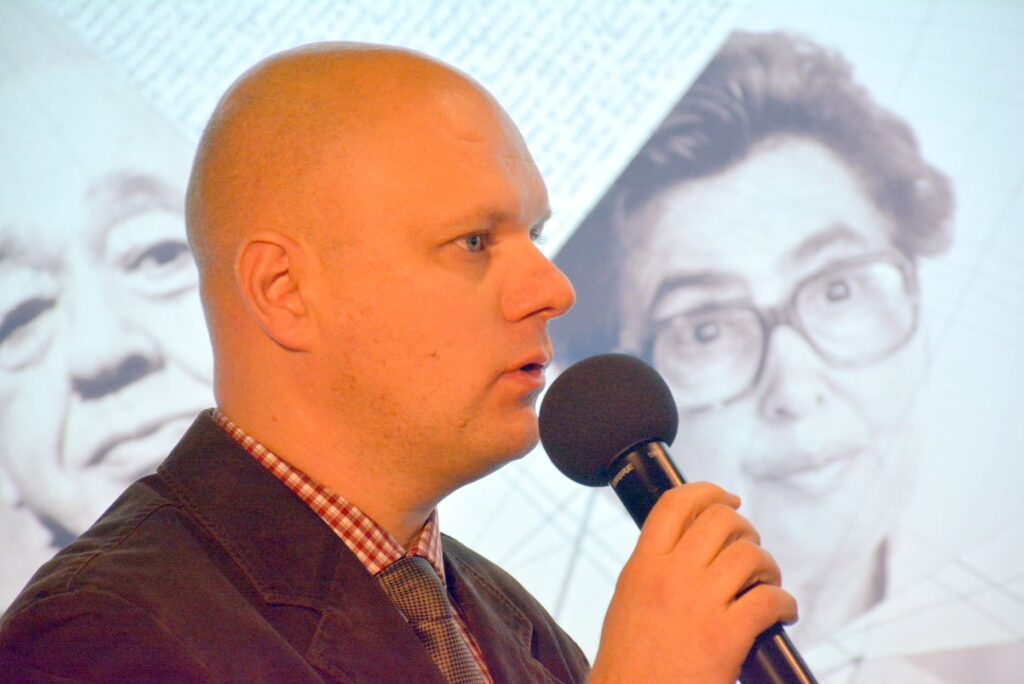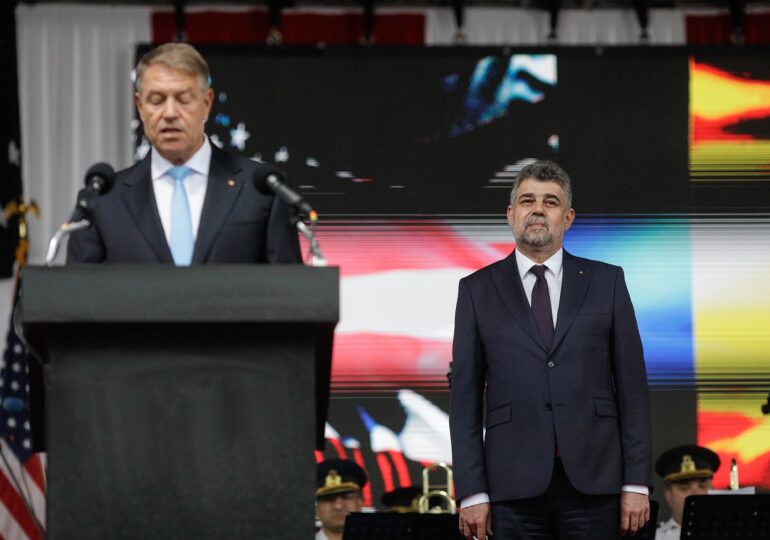The President of Romania presides over the CSAT (Supreme Council of National Defence), and the CSAT receives internal and external information with the highest possible level of secrecy, and the president has access to this information – a president who is inspired by a foreign power would, in fact, be as if the foreign power were presiding over the CSAT.
This is what alarmed Romania’s allies when the candidate Călin Georgescu was reevaluating the NATO shield. That would have posed immense security and national safety problems when he would have become Romania’s president, explains Professor Ioan Stanomir on the Punctul pe știri podcast (Rock FM).

„Călin Georgescu is definitely a special case because Mr. Georgescu is not Mr. Simion. Mr. Simion, with all his political limitations and all his criticizable viewpoints, is someone who has built his political career in plain sight. We know quite a lot about him.
Mr. Georgescu is an apparently mysterious character, always impeccably dressed and calmly formulating certain platitudes, beyond which lies a core much more dangerous than the AUR party's message, and I refer to formulations like the evaluation of the missile shield in Deveselu.
There we are no longer dealing with lines from movies or platitudes, but with a geostrategic positioning. That was, I believe, the moment when the anthropological and sociological experiment called Călin Georgescu started to concern Romania's allies.
What happened with the cancellation of the presidential elections is at the edge of the Constitution. There has been talk of a coup. We are not in a classic form of coup, but we are not far from forcing the Constitution. We are in a gray area.
Western allies approved this solution because a candidate who was reevaluating the Deveselu shield was a candidate who posed immense security and national safety problems when he would have become the President of Romania.
Perhaps Romanians do not understand this well enough, but the President of Romania presides over the CSAT, and the CSAT receives internal and external information with the highest possible level of secrecy, and the president has access to this information. And a president who is inspired by a foreign power would, in fact, be as if the foreign power were presiding over the CSAT."
Is extending Klaus Iohannis's term the best solution?
It is clear that President Iohannis was finishing his term, and it was equally clear that the issue of covering the interval between the end of the term and the swearing-in of the newly elected president raised an unprecedented issue in our history.
Constitutionally, even in the moments when we had the miners' riots, we did not have annulled presidential elections, stated Professor Stanomir.
"It is an absolute first, and so the Constitutional Court sought to manage this interval by interpreting the Constitution, specifying, after an analysis of the texts, that President Iohannis's mandate continues until the moment his successor takes the oath.
It is clear that there are multiple possibilities for interpreting the Constitution, that there are arguments in favor of the necessity of adopting a law by Parliament to extend the president's term. As for me, I believe that, beyond the criticisms we can address, President Iohannis was preferable to an interim president, with one condition: that President Iohannis performs his duty in a different way than he has done so far, on the one hand, and, on the other hand, that his stay as the president of the republic in these circumstances does not extend beyond a reasonable interval.
The president of the republic, in his capacity as the president of the CSAT, oversees the most important mechanisms of the state. However, precisely these state mechanisms have proven to be irrelevant the moment we were forced to witness the annulment of the presidential elections.
President Iohannis must understand that he is the moral and political author of the dramatic deadlock we find ourselves in, that he cannot blame anyone else but himself, that he is the one who promised stability and offered Romania the annulment of the presidential elections".
Has the danger of an extremist candidate disappeared?
Candidates may be history. However, popular sentiments can remain as they are, explains Ioan Stanomir:
"The main problem for those leading Romania at this moment is not to make the fatal mistake of postponing the elections for an unacceptably long period, hoping to pacify, with the necessary quotation marks, the Romanian people in this way. The Romanian people are not made up of serfs, they are not made up of slaves, they are made up of citizens. You cannot pacify citizens. You discuss with citizens and explain to them.
Not even animals are pacified with a whip, let alone the citizens of a country.
If people had been explained, in fact, if our compatriots, the citizens of Romania, had been explained, Călin Georgescu would no longer have been on Realitatea TV every evening, and the audience of Realitatea TV would not have been what it is. On the one hand. On the other hand, if the people of this country, the citizens of this country had been convinced, President Iohannis would have had to behave differently.
I rhetorically ask myself: Is President Iohannis behaving differently today than he has in the last ten years? It seems to me that he is not."
PSD's Moves
Asked about Marcel Ciolacu's decision to withdraw PSD from the government formation negotiations, Ioan Stanomir considers it a matter of opportunity:
"Either PSD wants to demonstrate that nothing can be done without them, or PSD really wants to let others try to pay the bill. Metaphorically speaking and with a more brutal expression, regardless of the interpretations we can give, one thing is certain, a government must be based on a majority. A minority government composed of PNL and USR is a chimera.
We are not seeking the supreme ideal in politics and trying to ensure a form of survival in the societies we live in during difficult times. I am afraid that such negotiation tactics only increase tension, anxiety in society, and are quite disappointing.
If Mr. Ciolacu aims to be a presidential candidate again, he probably does not want to be directly associated with the government."

